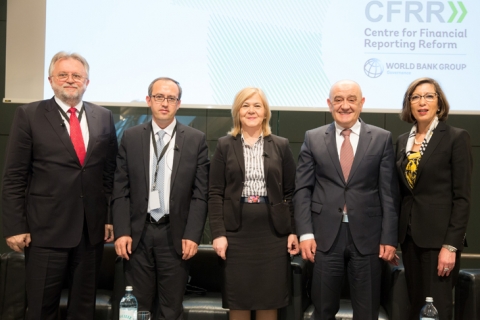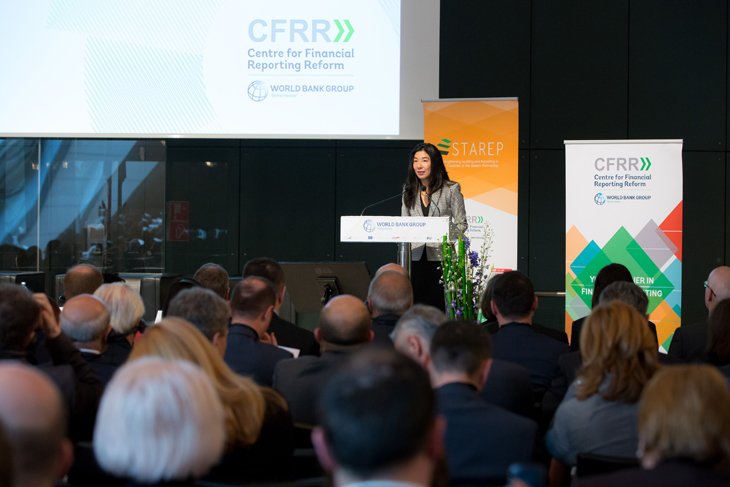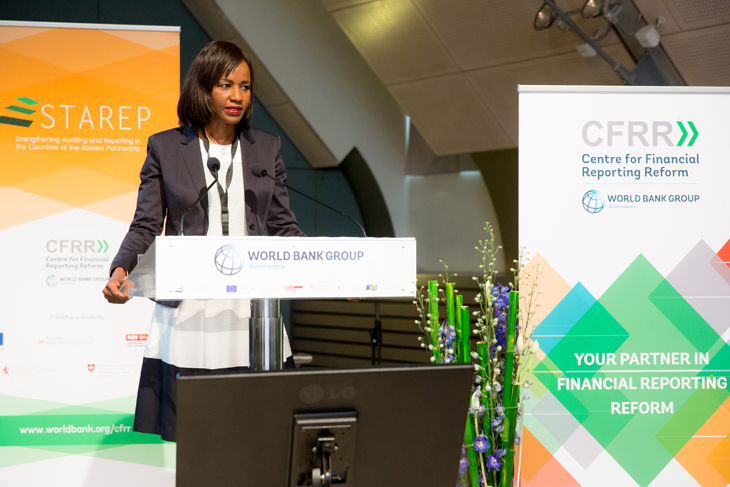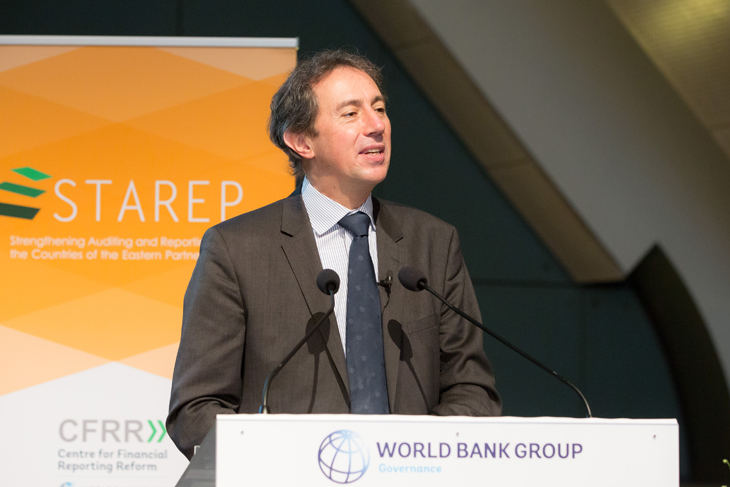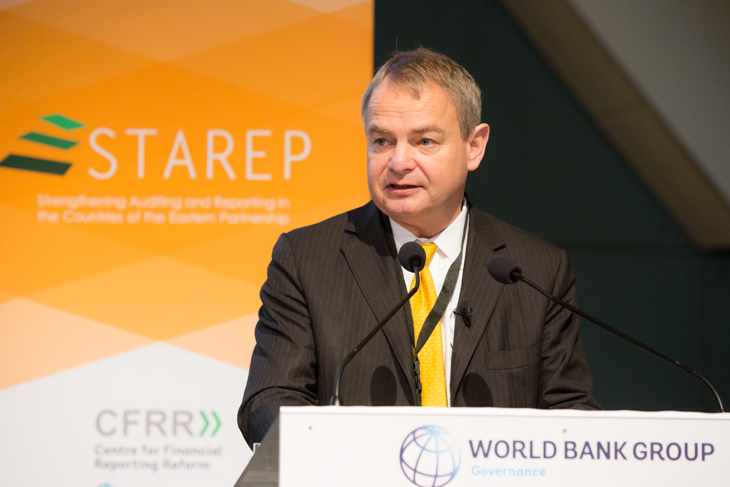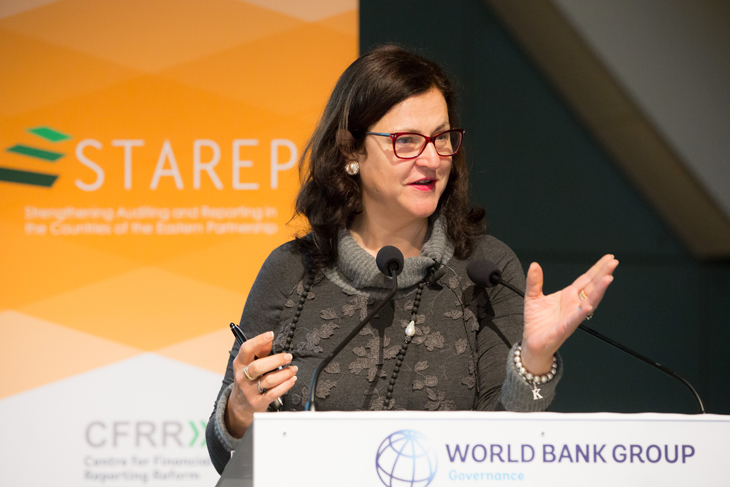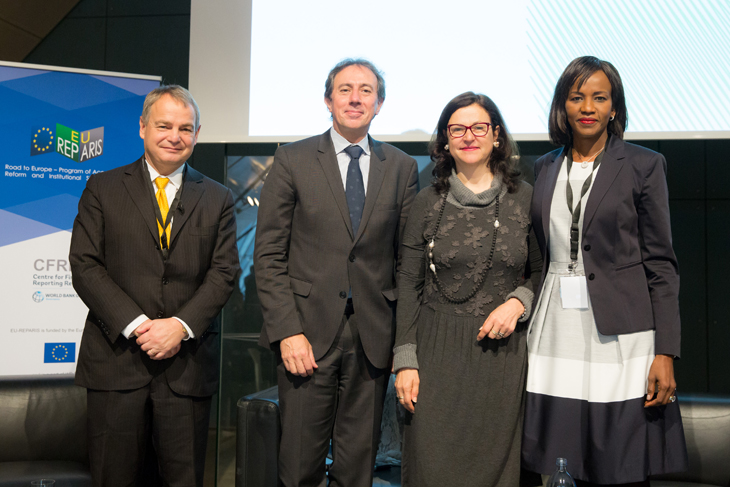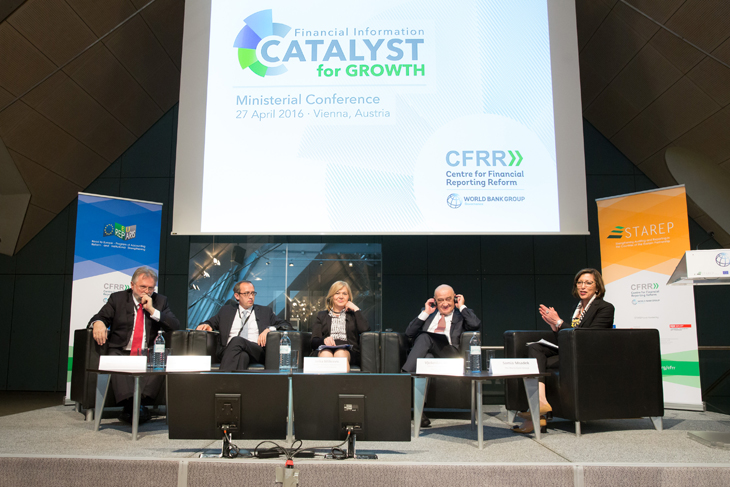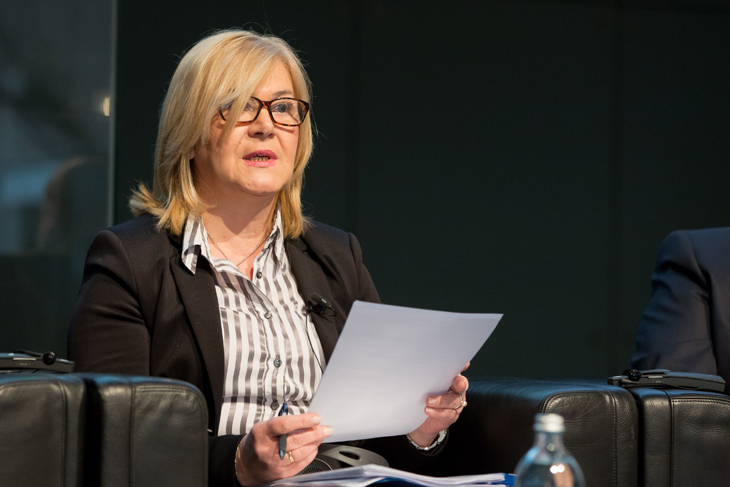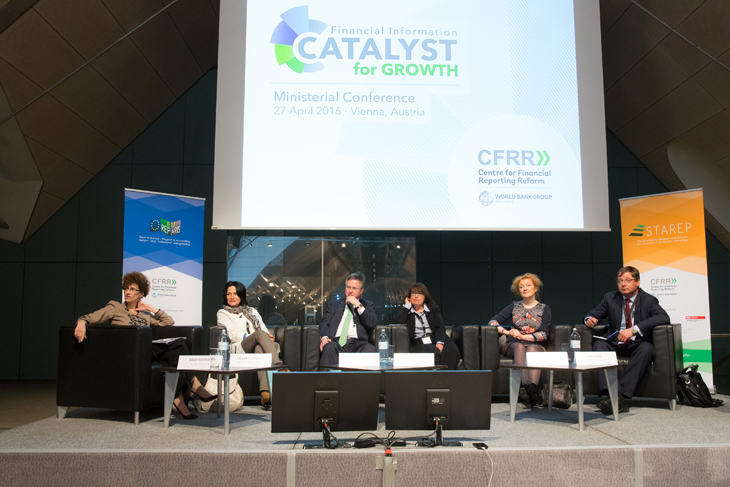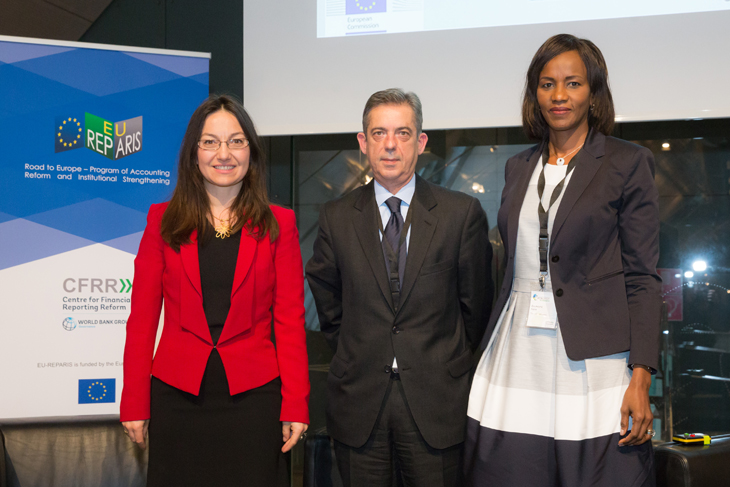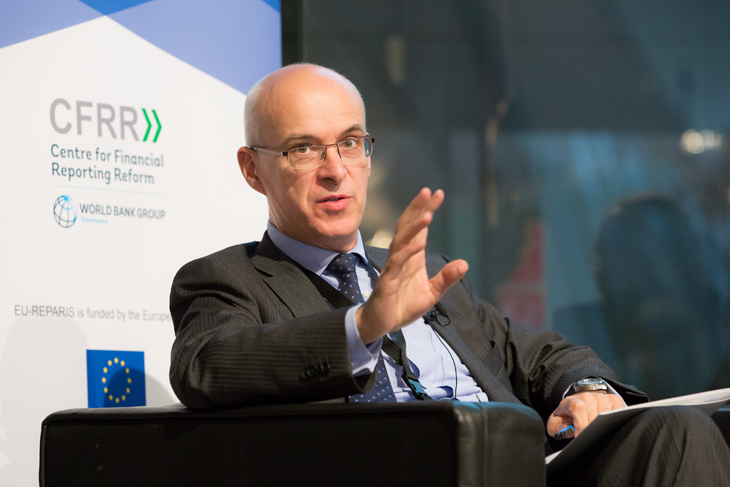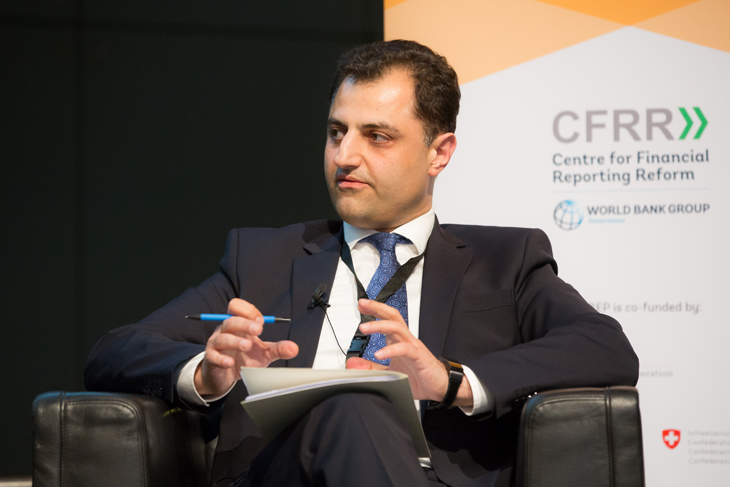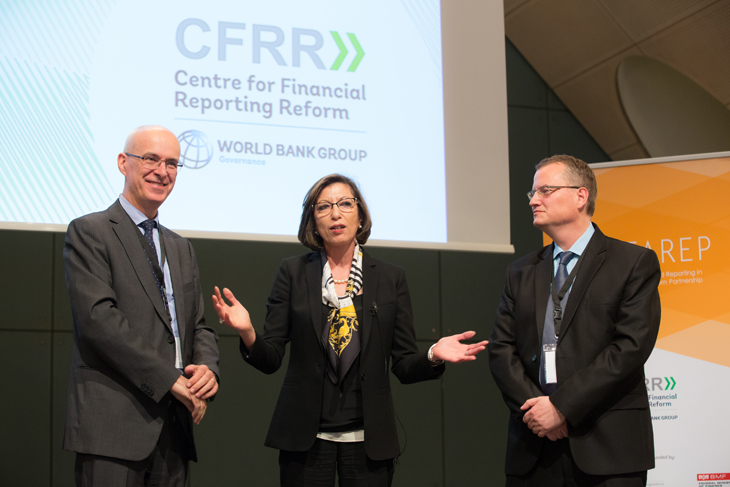Quality Financial Reporting – a Catalyst for Growth
“Trust, sustainability, finance, development, communication, and success.” These were the most frequently used words during three high-level events in Vienna from 26 to 28 April, according to Samia Msadek, Practice Director, Governance Global Practice at the World Bank.
On 27 April 2016, the biennial Ministerial Conference hosted by the World Bank’s Centre for Financial Reporting Reform (CFRR) addressed the impact that quality financial reporting has on catalyzing growth in investments and economies. Around 240 delegates attended the Conference, including ministers of finance, senior government representatives, and representatives of the business, professional and academic communities from across Europe and Central Asia (ECA), along with experts from key international organizations.
Reiterating Austria’s support for the reform agenda, Hans Jörg Schelling, Austrian Minister of Finance, welcomed participants through a video message: “We care about an enabling environment for growth and stability in our neighbouring countries. Strong corporate financial reporting systems contribute to private sector growth, financial markets development and thus to financial stability.”
In view of the current economic situation and the key role that the private sector needs to play in creating jobs to boost the economy, speakers repeatedly stressed the importance of enhancing the quality of financial information to achieve greater transparency and, as such, act as a catalyst for growth. The key benefits of reliable financial reporting identified throughout the Conference were financial stability, private sector development, and public administration reform.
Cyril Muller, Regional Vice President for ECA at the World Bank, explained how the STAREP and EU-REPARIS programs are helping to “create building blocks that together form a more conducive and predictable policy environment and an effective institutional framework for corporate reporting in participating countries. In EU candidate and potential candidate countries, this has involved aligning relevant legislation and institutions with EU requirements, which represent not only a benchmark of international good practice, but also facilitate greater integration and better access to EU markets.”
Katarína Mathernova, Deputy Director General, Directorate General for Neighbourhood and Enlargement Negotiations at the European Commission, highlighted the significance of the EU-REPARIS and STAREP programs to economic growth and transparency in both public and private sector finance. Stressing the importance of sustaining the reform momentum, she informed participants that reliable financial information can provide the basis for comparability that enables access to finance.
Ministers of Finance from Bosnia and Herzegovina, the Federation of Bosnia and Herzegovina, Kosovo and Serbia discussed how high-quality financial reporting can act as a catalyst for increased confidence, transparency and trust – which in turn create an environment conducive to sustainable economic growth, job creation and development throughout the region. The four ministers described the opportunities and challenges of using financial information for economic development in the region, and outlined the progress made so far. Common priorities include job creation, closing the gap between accession countries and the EU, providing opportunities for private entrepreneurs, creating incentives to encourage fair financial reporting and ensuring that such reporting is enforced properly, and tackling the corporate governance of state-owned enterprises.
During a panel discussion comprising representatives of the finance, investment and credit industries, panelists described the critical contribution of high-quality financial information to more efficient investment, lending and business decisions. This message was reinforced in a video shared by Hans Hoogervorst, Chairman of the International Accounting Standards Board (IASB), which provided a clear correlation between sound financial information and decisions of investors.
Panelists also explored the role of public accounting reform in promoting governments’ transparency and accountability, managing fiscal risk, and spurring inclusive growth. Soukeyna Kane, Practice Manager, Governance Global Practice at the World Bank, outlined how the World Bank is helping to address some of the challenges that are prevalent in public accounting such as shortcomings in institutional frameworks, limited technical capacity, a lack of data availability and inadequate IT systems.
In the final session, policy makers from the countries covered by the EU-REPARIS and STAREP regional programs outlined key priorities and challenges in financial reporting reforms. Discussions also focused on ways to enhance the investment climate in the region over the next two years.
Some of the main challenges facing countries in the ECA region are:
- Completing the reform process beyond legal reform by putting them into practice;
- Building the capacity of practitioners and users;
- Establishing a public oversight system that is functional and fit for purpose.
Henri Fortin, Global Lead, Corporate Governance and Financial Reporting at the World Bank, commended participating countries for helping each other by sharing and learning from experiences in the area of financial reporting reform. He also stated that the World Bank and its Governance Global Practice team is committed to providing further assistance to client countries at the global level.
In addition, the CFRR organized two special events related to the Ministerial Conference the same week: a Senior Officials Workshop on 26 April, and the Professional Accountancy Organizations Forum on 28 April.

